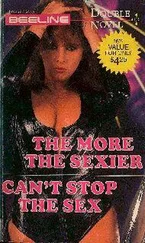McHugh doesn’t fit this description. He discovered his introversion as a junior at Claremont McKenna College, when he realized he was getting up early in the morning just to savor time alone with a steaming cup of coffee. He enjoyed parties, but found himself leaving early. “Other people would get louder and louder, and I would get quieter and quieter,” he told me. He took a Myers-Briggs personality test and found out that there was a word, introvert , that described the type of person who likes to spend time as he did.
At first McHugh felt good about carving out more time for himself. But then he got active in evangelicalism and began to feel guilty about all that solitude. He even believed that God disapproved of his choices and, by extension, of him.
“The evangelical culture ties together faithfulness with extroversion,” McHugh explained. “The emphasis is on community, on participating in more and more programs and events, on meeting more and more people. It’s a constant tension for many introverts that they’re not living that out. And in a religious world, there’s more at stake when you feel that tension. It doesn’t feel like ‘I’m not doing as well as I’d like.’ It feels like ‘God isn’t pleased with me.’ ”
From outside the evangelical community, this seems an astonishing confession. Since when is solitude one of the Seven Deadly Sins? But to a fellow evangelical, McHugh’s sense of spiritual failure would make perfect sense. Contemporary evangelicalism says that every person you fail to meet and proselytize is another soul you might have saved. It also emphasizes building community among confirmed believers, with many churches encouraging (or even requiring) their members to join extracurricular groups organized around every conceivable subject—cooking, real-estate investing, skateboarding. So every social event McHugh left early, every morning he spent alone, every group he failed to join, meant wasted chances to connect with others.
But, ironically, if there was one thing McHugh knew, it was that he wasn’t alone. He looked around and saw a vast number of people in the evangelical community who felt just as conflicted as he did. He became ordained as a Presbyterian minister and worked with a team of student leaders at Claremont College, many of whom were introverts. The team became a kind of laboratory for experimenting with introverted forms of leadership and ministry. They focused on one-on-one and small group interactions rather than on large groups, and McHugh helped the students find rhythms in their lives that allowed them to claim the solitude they needed and enjoyed, and to have social energy left over for leading others. He urged them to find the courage to speak up and take risks in meeting new people.
A few years later, when social media exploded and evangelical bloggers started posting about their experiences, written evidence of the schism between introverts and extroverts within the evangelical church finally emerged. One blogger wrote about his “cry from the heart wondering how to fit in as an introvert in a church that prides itself on extroverted evangelism. There are probably quite a few [of you] out there who are put on guilt trips each time [you] get a personal evangelism push at church. There’s a place in God’s kingdom for sensitive, reflective types. It’s not easy to claim, but it’s there.” Another wrote about his simple desire “to serve the Lord but not serve on a parish committee. In a universal church, there should be room for the un-gregarious.”
McHugh added his own voice to this chorus, first with a blog calling for greater emphasis on religious practices of solitude and contemplation, and later with a book called Introverts in the Church: Finding Our Place in an Extroverted Culture . He argues that evangelism means listening as well as talking, that evangelical churches should incorporate silence and mystery into religious worship, and that they should make room for introverted leaders who might be able to demonstrate a quieter path to God. After all, hasn’t prayer always been about contemplation as well as community? Religious leaders from Jesus to Buddha, as well as the lesser-known saints, monks, shamans, and prophets, have always gone off alone to experience the revelations they later shared with the rest of us.
* * *
When finally I find my way to the bookstore, McHugh is waiting with a serene expression on his face. He’s in his early thirties, tall and broad-shouldered, dressed in jeans, a black polo shirt, and black flip-flops. With his short brown hair, reddish goatee, and sideburns, McHugh looks like a typical Gen Xer, but he speaks in the soothing, considered tones of a college professor. McHugh doesn’t preach or worship at Saddleback, but we’ve chosen to meet here because it’s such an important symbol of evangelical culture.
Since services are just about to start, there’s little time to chat. Saddleback offers six different “worship venues,” each housed in its own building or tent and set to its own beat: Worship Center, Traditional, OverDrive Rock, Gospel, Family, and something called Ohana Island Style Worship. We head to the main Worship Center, where Pastor Warren is about to preach. With its sky-high ceiling crisscrossed with klieg lights, the auditorium looks like a rock concert venue, save for the unobtrusive wooden cross hanging on the side of the room.
A man named Skip is warming up the congregation with a song. The lyrics are broadcast on five Jumbotron screens, interspersed with photos of shimmering lakes and Caribbean sunsets. Miked-up tech guys sit on a thronelike dais at the center of the room, training their video cameras on the audience. The cameras linger on a teenage girl—long, silky blond hair, electric smile, and shining blue eyes—who’s singing her heart out. I can’t help but think of Tony Robbins’s “Unleash the Power Within” seminar. Did Tony base his program on megachurches like Saddleback, I wonder, or is it the other way around?
“Good morning, everybody!” beams Skip, then urges us to greet those seated near us. Most people oblige with wide smiles and glad hands, including McHugh, but there’s a hint of strain beneath his smile.
Pastor Warren takes the stage. He’s wearing a short-sleeved polo shirt and his famous goatee. Today’s sermon will be based on the book of Jeremiah, he tells us. “It would be foolish to start a business without a business plan,” Warren says, “but most people have no life plan. If you’re a business leader, you need to read the book of Jeremiah over and over, because he was a genius CEO.” There are no Bibles at our seats, only pencils and note cards, with the key points from the sermon preprinted, and blanks to fill in as Warren goes along.
Like Tony Robbins, Pastor Warren seems truly well-meaning; he’s created this vast Saddleback ecosystem out of nothing, and he’s done good works around the world. But at the same time I can see how hard it must be, inside this world of Luau worship and Jumbotron prayer, for Saddleback’s introverts to feel good about themselves. As the service wears on, I feel the same sense of alienation that McHugh has described. Events like this don’t give me the sense of oneness others seem to enjoy; it’s always been private occasions that make me feel connected to the joys and sorrows of the world, often in the form of communion with writers and musicians I’ll never meet in person. Proust called these moments of unity between writer and reader “that fruitful miracle of a communication in the midst of solitude.” His use of religious language was surely no accident.
McHugh, as if reading my mind, turns to me when the service is over. “Everything in the service involved communication,” he says with gentle exasperation. “Greeting people, the lengthy sermon, the singing. There was no emphasis on quiet, liturgy, ritual, things that give you space for contemplation.”
Читать дальше
![Сьюзан Кейн Quiet [The Power of Introverts in a World That Can't Stop Talking] обложка книги](/books/33084/syuzan-kejn-quiet-the-power-of-introverts-in-a-wo-cover.webp)











